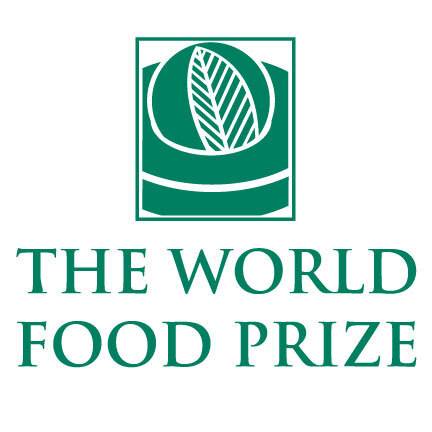National Focus on Food during World Food Prize Week
There are many different topics I want to cover yet this month, but I’m running short on weeks!
 October is National Pork Month, and as a pork producer, I like to do all that I can to promote the product I raise. Then there’s that nasty land grab on the ballot in New Jersey. But this week the World Food Prize is being awarded in Des Moines, so a story about food will take priority.
October is National Pork Month, and as a pork producer, I like to do all that I can to promote the product I raise. Then there’s that nasty land grab on the ballot in New Jersey. But this week the World Food Prize is being awarded in Des Moines, so a story about food will take priority.
“Food” has become such a broad subject, and there seems to be almost an obsession with food labels such as locally grown and organically produced. Recently, I’ve read too many articles proclaiming that small farms are the best way to feed the world.
Say what? I’m under the impression that our society had moved beyond subsistence living thanks to advancements in agriculture. Innovation and technology helped free up labor, so people could pursue something other than raising food. Advances we’ve made in the last 100 years have allowed us to go from farming with horses to tractors that drive themselves! As a result, Americans’ standard of living has increased exponentially.
Don’t blame farmers for the “system” that may not be getting food to the mouths of those whom need it! Politics, regulations, weather, war, incomes… so many factors are involved with feeding the world. In China, for example, the government is moving millions of people to big new cities. The purpose is two-fold: (1) those living in the city will have a better standard of living, and (2) the farm ground can be utilized to grow more food.
China needs to grow more food to feed its population. They’re looking at way to increase efficiency. One innovation that has led to the increased efficiency of food production is biotechnology. Yet, stories are circulating that new technologies, such as GMOs, are putting small farmers out of business.
Speaking from personal experience as a small farmer, I’m not being forced to buy any technology I don’t want. I could save back my own seed. I could pull all the weeds by hand. And I’m sure my yields and profit wouldn’t suffer… yeah, right! (I know my yields would suffer, and I don’t want to pull any weeds by hand if I can help it!)
Truth is, GMOs have led to increased soil conservation and better water quality. My favorite newspaper (insert sarcasm) recently reported that GMOs have falsely taken the credit for moving conservation forward. Of course, the GMOs aren’t holding the soil themselves! But this headline that ran in last week’s newspaper is simply misleading: “Study: Biotech crops not reducing soil erosion.” (Read a bit further and you’ll see that the “study” was funded by an environmental group. It’s just one more example of why we must consider the source and use critical thinking skills.)
Speaking from personal experience, GMOs allow me to farm differently. Forty years ago, I tried no-till farming. It flat out didn’t work with my soils! Technology evolved during the last decade – redesigned equipment, new seeds and reformulated pesticides – came together to make no-till work now.
Better seeds and better equipment will help farmers of any size. That’s how farmers in this country have advanced; it’s how farmers in other countries like Ukraine and Uganda want to advance. But that doesn’t mean that we all must farm alike. After all, farmers grow different crops and raise different livestock based largely on where they live in addition to personal interests. I raise food primarily through animals here in Iowa, which is America’s number one pork-producing state. The way Tyson Roberts raises food in Utah is much more direct, right to the consumer. Yet, we’re both farmers trying to make a living.
It’s going to take farmers of all sizes to feed this world, and this week the World Food Prize will highlight some great people doing amazing, innovative things to help feed our growing world. In fact, Dr. Norman Borlaug of Iowa founded the World Food Prize to recognize people for their contributions to ending famine and starvation. Borlaug, a Nobel Peace Prize winner, has been called “the man who saved more lives than anyone who has ever lived.” His legacy lives on as other agricultural researchers around the world work to integrate viable technologies into today’s food systems.
Stay tuned to the Borlaug Dialogues, which focused around “The Greatest Challenge in Human History: Can We Sustainably Feed the 9 Billion People on our Planet by the Year 2050?”
RELATED BLOG POSTS:
- Be an Advocate during World Food Prize Week
- Celebrate Ag in a Big Borlaug Way
- Recognizing People for Improving the Environment